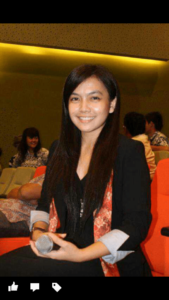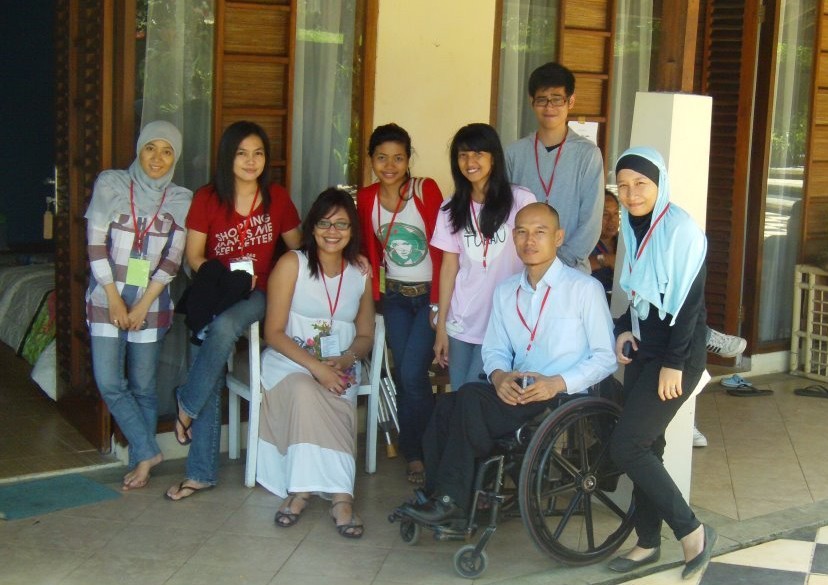4 March 2013.

Jakarta – Angela Friska started suffering from asthma when she was 8. Her parents soon discovered that her strong medication was affecting her hearing ability, as they had to constantly repeat their words to her. By the age of 10, Friska was deaf. The situation shattered her self-confidence.
School became a daily torment. Things did not improve when she went to university. It took her six years to complete a four-year bachelor thesis in technological engineering. “Imagining the examination itself was enough to make me panic. And even if I passed the test, what would I then do? Which company would be willing to recruit an employee like me?” she recalls thinking.
Life change
Her life began to change when she volunteered to evacuate victims of the 2006 earthquake in Yogyakarta, on the island of Java. She not only discovered herself and her capacities, but also became aware that she could help others.
Most of the victims had broken bones. We carried them to a safer place where they could wait for medical treatment, ” she remembers.
Later, she found a job in the IT department of one Indonesia’s largest media groups (Femina). Her colleagues in the office were aware of her situation and accepted her different needs. Communication through telephone has now been replaced with e-mail.
Now Friska has joined Better Work Indonesia (BWI), a joint programme of the ILO and the International Finance Corporation, as a consultant for the programme’s disability component. Her job will be to raise awareness among enterprises in the garment industry and encourage them to provide more job opportunities for disabled people.
Over the next months, she will accompany Better Work Indonesia’s Enterprise Advisors to factories to discuss with management and worker committees how to hire more people with disabilities and to ensure that factories are in compliance with Indonesian law. She will also help disabled people become more comfortable and confident in the workplace.
Disabled people should be able to adapt to non-disabled people, and I trust they can”, she says.
Meeting the disability quota
In Indonesia, companies are obliged by law to provide job opportunities for people with disabilities, and face a fine if they do not meet a one per cent quota. As some of the garment factories in Indonesia have over 100,000 workers, that means at least 1,000 people with disabilities. At the moment, the average number is less than 100.
Most garment factories are unable to meet the government-mandated quota due to a lack of information, stigma and discriminatory attitudes of employers and co-workers alike,” explains Simon Field, Programme Manager of BWI.
ILO experts, who consulted with Friska and others, have prepared guidelines to assist companies in the process of hiring people with disabilities. (See guidelines here.) And in August 2012, BWI organized a meeting between organizations of people with disabilities and buyers for multinational companies. All participants strongly supported the idea of improving access to work for people with disabilities and fulfilling companies’ disabled worker quota.
The meeting was only the beginning of a series of projects by BWI to help people with disabilities access formal economy sectors, such as the garment industry,” says Field. “We need a stronger commitment from international buyers, employers and disabled workers alike so that persons with disabilities become agents of change.”
(Originally published by Better Work Indonesia)
